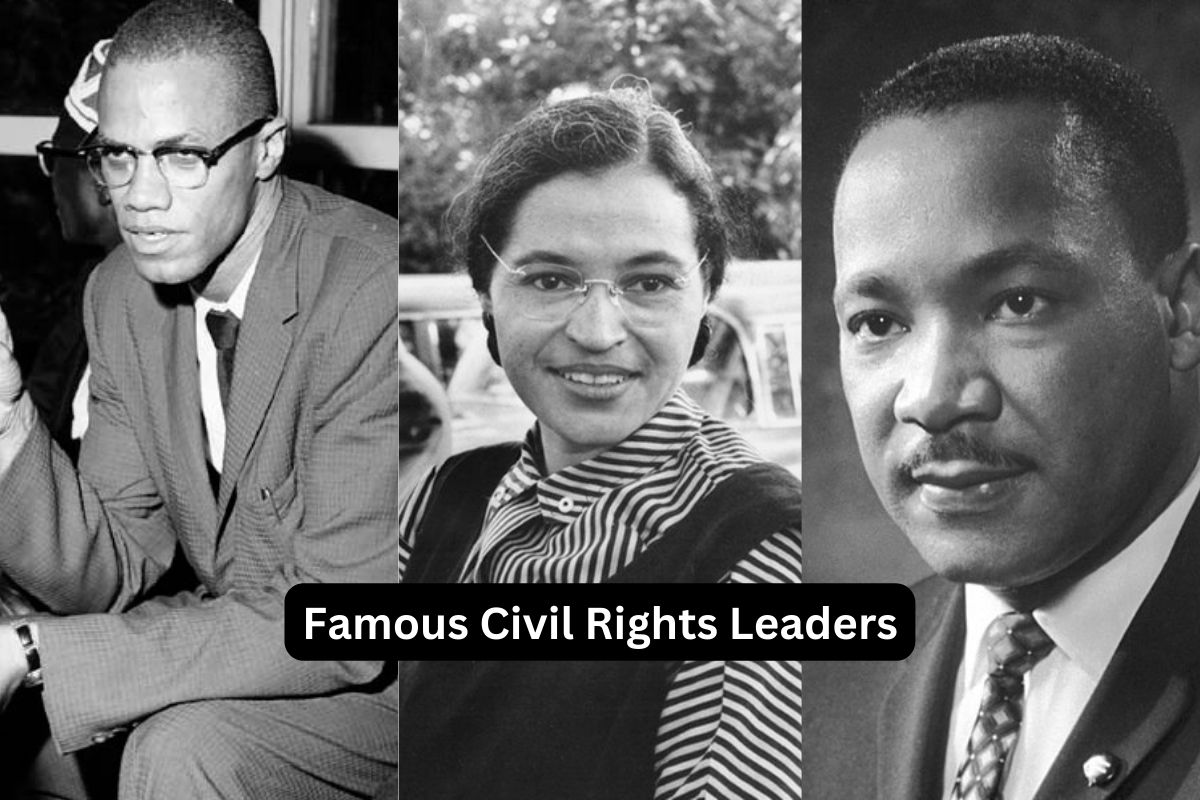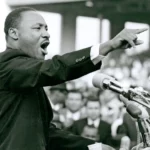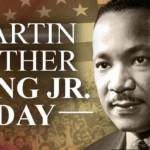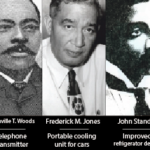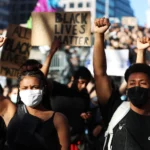The Civil Rights Movement, a seismic shift in American history, was steered by a cadre of remarkable leaders whose backgrounds, personal stories, and unwavering commitment to justice played pivotal roles in reshaping the nation. In this detailed exploration, we delve into the lives of key figures, examining their motivations, distinguishing qualities, and contributions to the movement’s success.
1. Martin Luther King Jr.: The Beacon of Nonviolent Resistance
Background:
- Born in 1929 in Atlanta, Georgia, Martin Luther King Jr. hailed from a family deeply rooted in the church, instilling in him a commitment to social justice.
Personal Story:
- King’s journey began as a Baptist minister, drawing inspiration from Mahatma Gandhi’s principles of nonviolent resistance.
Motivation:
- King’s fervor for civil rights emanated from his desire to dismantle racial segregation and discrimination through nonviolent means, echoing the teachings of love and equality.
Distinguishing Qualities:
- Renowned for his eloquence and moral authority, King led the Southern Christian Leadership Conference (SCLC) and played a pivotal role in the Montgomery Bus Boycott.
Contribution:
- Instrumental in the March on Washington and the creation of the Civil Rights Act of 1964, King’s legacy endures as a symbol of the power of nonviolent protest.
2. Rosa Parks: The Catalyst for Change
Background:
- Rosa Parks, born in 1913 in Tuskegee, Alabama, was a seamstress and secretary for the NAACP.
Personal Story:
- Parks became the face of resistance when she refused to give up her bus seat, sparking the Montgomery Bus Boycott.
Motivation:
- Her act of defiance was rooted in a lifetime of witnessing racial inequality, driving her to take a stand against segregation.
Distinguishing Qualities:
- Parks’ quiet strength and commitment to equality made her an iconic figure in the fight against racial injustice.
Contribution:
- Parks’ bravery ignited the Montgomery Bus Boycott, a pivotal event that laid the groundwork for larger civil rights actions.
3. Malcolm X: Advocate for Black Empowerment
Background:
- Born Malcolm Little in 1925 in Omaha, Nebraska, Malcolm X’s early life was marred by violence and systemic racism.
Personal Story:
- Imprisoned for burglary, Malcolm X discovered the teachings of the Nation of Islam, leading to his transformation.
Motivation:
- Malcolm X sought to empower African Americans through self-defense and economic independence, challenging the nonviolent approach.
Distinguishing Qualities:
- Known for his fiery oratory skills and uncompromising stance, Malcolm X offered an alternative perspective within the movement.
Contribution:
- His advocacy for black pride and self-defense contributed to the broader dialogue on civil rights, inspiring future generations.
4. John Lewis: The Fearless Advocate for Equality
Background:
- Born in 1940 in Troy, Alabama, John Lewis was raised on a farm and exposed to the harsh realities of segregation.
Personal Story:
- Lewis joined the Student Nonviolent Coordinating Committee (SNCC) and was a key figure in Freedom Rides and the March on Washington.
Motivation:
- Lewis’ experiences with racial injustice fueled his determination to fight for civil rights, even in the face of violence.
Distinguishing Qualities:
- Known for his courage and commitment to nonviolent resistance, Lewis earned respect as a prominent voice for justice.
Contribution:
- Lewis played a crucial role in the Selma to Montgomery March, enduring brutality on Bloody Sunday and contributing to the passage of the Voting Rights Act.
5. Fannie Lou Hamer: The Voice of Voting Rights
Background:
- Born in 1917 in Montgomery County, Mississippi, Fannie Lou Hamer was a sharecropper and a voting rights activist.
Personal Story:
- Hamer’s activism began when she attempted to register to vote and was met with severe violence.
Motivation:
- Her experiences fueled her commitment to securing voting rights for African Americans in the South.
Distinguishing Qualities:
- Hamer’s powerful speeches and fearless advocacy earned her a prominent role in the Mississippi Freedom Democratic Party.
Contribution:
- Hamer’s efforts highlighted the struggles for voting rights, leading to increased awareness and legislative changes.
Conclusion: Honoring the Champions of Equality
The architects of the Civil Rights Movement, with diverse backgrounds and motivations, collectively propelled the nation towards justice. Their indomitable spirits, unwavering dedication, and distinctive contributions laid the foundation for a more inclusive America. As we reflect on their stories, we honor these champions of equality, recognizing that their legacies continue to inspire generations in the ongoing pursuit of justice and civil rights.

